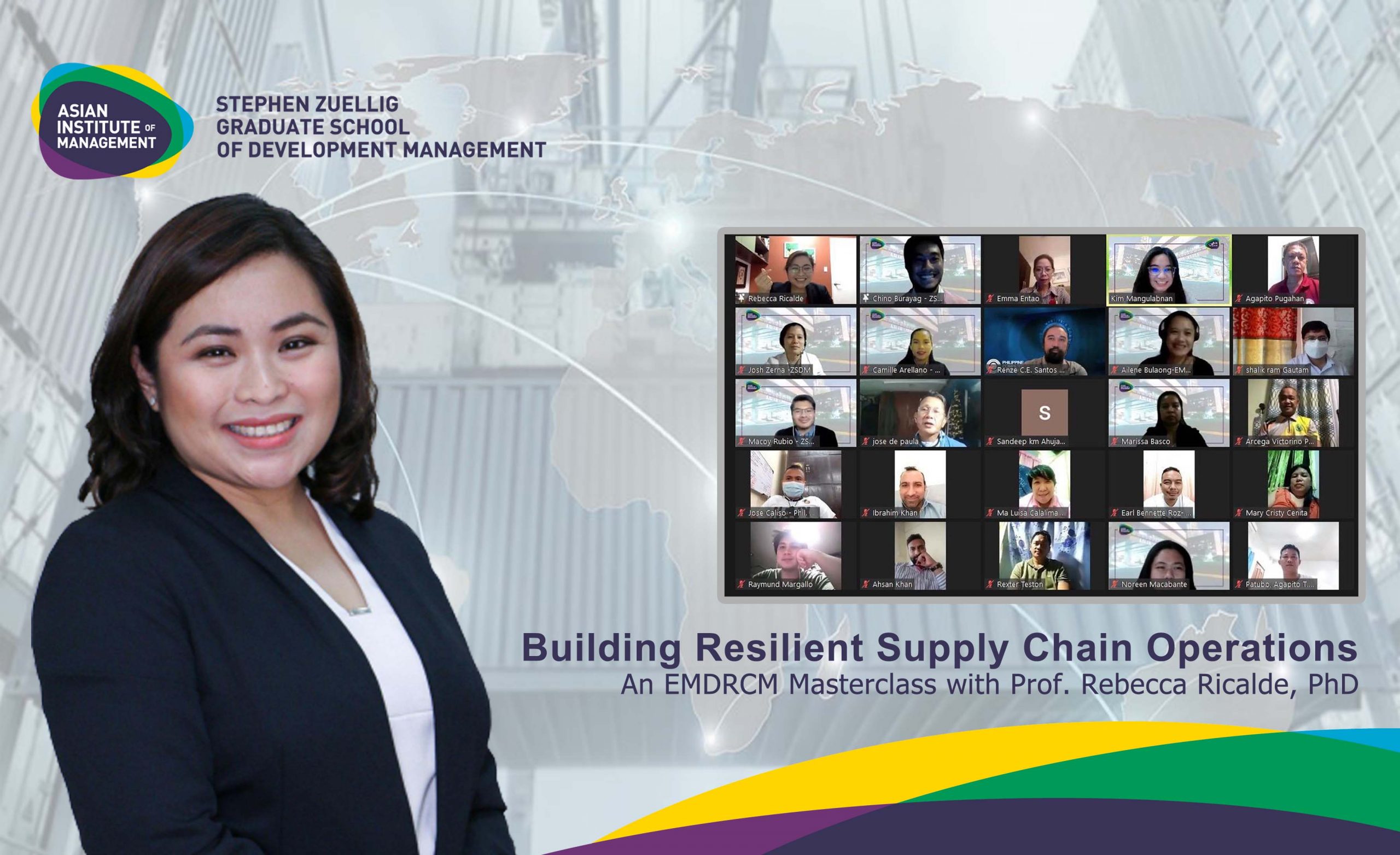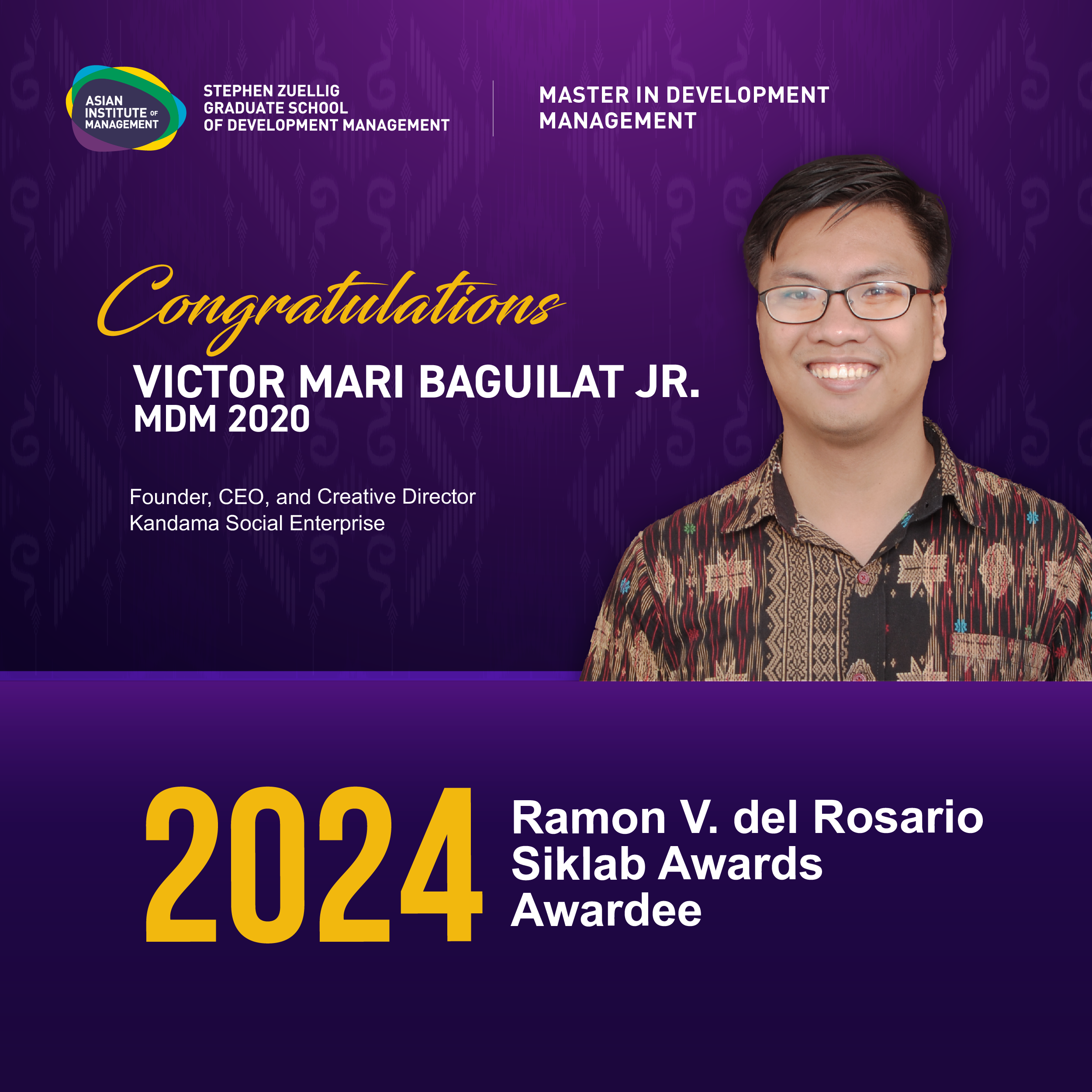Organizations nowadays are investing in building resilient and flexible supply chain operations as a result of frequent and high-impact global events that affect business processes.
Given today’s changing landscape, the Stephen Zuellig Graduate School of Development Management and its Executive Master in Disaster Risk and Crisis Management program hosted a masterclass on Building Resilient Supply Chain Operations last 03 June 2021 via Zoom and was participated in by a diverse audience coming from different countries such as Afghanistan, Bhutan, Cambodia, India, Indonesia, Nepal, Pakistan, Philippines, Turkey, and the United States.
The masterclass was facilitated by one of AIM’s Clinical Professors, Prof. Rebecca Ricalde who teaches operations management and marketing courses. She has 15 years of extensive experience in the corporate world, both in commercial and operational leadership roles in large companies namely: Nestle, Amazon, and Lazada as well as start-ups such as Ayosdito.Ph and Voyager Innovations.
During the masterclass, Prof. Rebecca started her presentation by emphasizing that supply chain management nowadays is getting more complex and vulnerable as most business organizations are going through expansion—and are also increasing their reach by sourcing and selling across the globe.
People still think that the supply chain is only about the sourcing of supplies, when in fact a lot of sourcing happens in the supply chain, and that the supply chain is also linked to the delivery of goods.
In the current scenario, wherein organizations are seeking to expand their markets abroad, the supply chain also becomes global. With global reach, an organization’s footprint spans across different regions and countries, thereby increasing the complexity and vulnerability of their operations.
During the pre-pandemic era, the supply chain strategies are mostly focused on reducing cost, and improving quality and speed of production. But within the last 5 years, disruptions in the global supply chain such as climate change, cyberattacks, trade wars between highly influential countries, and health crises have pushed organizations across the globe to re-focus supply chain strategies. As a result, the focus is now on flexibility, business continuity, and an increase in resilience.
And building resilience changes the standard norms in operations.
In the past, consolidation of volume to lower cost of operations was the primary objective, but in building resilience, it has shifted to creating operational capacity in different areas, whether local or global. Another observed practice is the reduction of inventory, however, in making a resilient supply chain, it has been modified to analyzing strategic locations where inventory should be. And lastly, taking into account an organizations’ supplier relationship, wherein suppliers were previously being managed for cost, but now, organizations are working closely with suppliers to ensure business operations would continue and remain optimal in times of crises.
As the masterclass closes, Prof. Rebecca shared a quote by Winston Churchill saying, “Never let a good crisis go to waste”, encouraging organizations and the participants themselves to be able to come out stronger and learn from the crises they have encountered and be able to learn from it and make better strategies for the organization’s operations moving forward.
To learn more about AIM’s Executive Master in Disaster Risk and Crisis Management program, click here.






